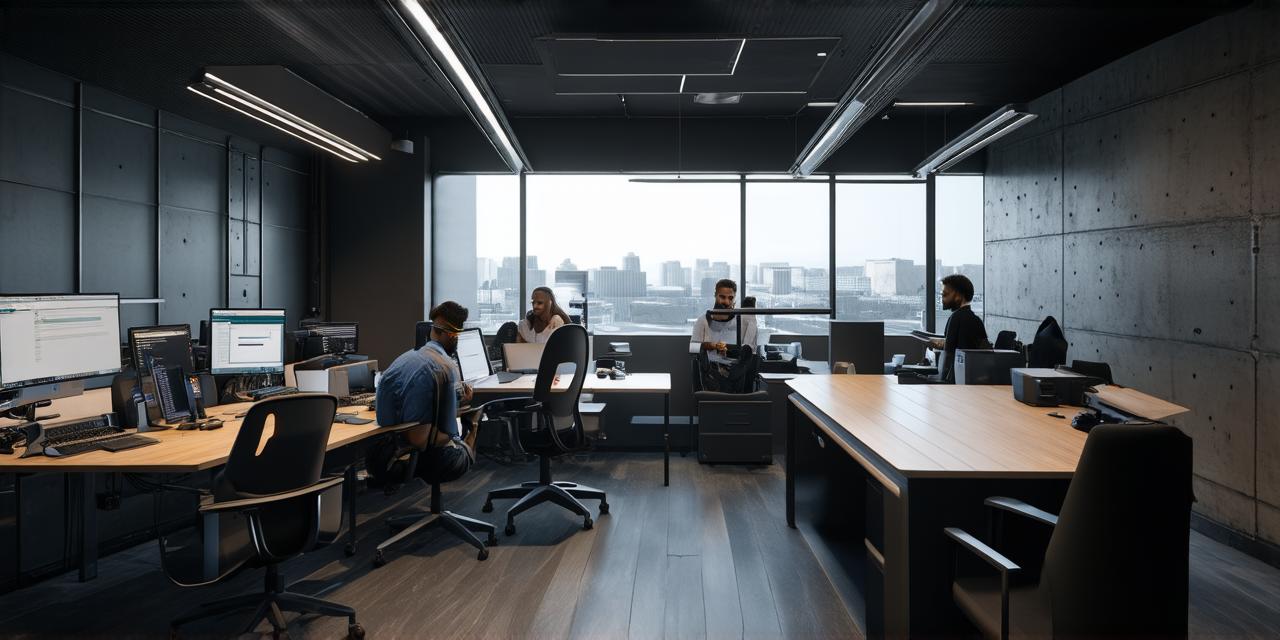Game development is a rapidly growing industry that attracts passionate individuals from all walks of life. From small indie studios to large corporations, game developers work in a variety of environments that cater to their unique needs and creative processes.
Physical Workspaces of Game Developers
Game developers often have unique physical workspaces that reflect their creative personalities and development process. Some developers prefer to work in an open-concept office with collaborative spaces, while others prefer a more solitary workspace to focus on their individual projects. Here are some common physical workspaces of game developers:
- Open-concept offices – These workplaces are designed for collaboration and communication among team members. They often include communal desks, conference rooms, and break areas where game developers can work together and brainstorm ideas.
- Individual cubicles or private offices – Some developers prefer a more isolated workspace where they can focus on their individual projects without distractions. These workspaces may include personal desks, monitors, and gaming equipment.
- Game rooms – Many game studios have dedicated game rooms where developers can relax and unwind after a long day of work. These spaces often include gaming consoles, arcade machines, and other forms of entertainment to help developers recharge.
Tools and Technologies Used by Game Developers
Game development requires a wide range of tools and technologies to bring digital games to life. Here are some common tools and technologies used by game developers:
- Graphics Processing Units (GPUs) – These powerful computers are used for rendering high-quality graphics in video games. They are especially important for developing 3D games with complex visuals.
- Software Development Kits (SDKs) – SDKs provide game developers with the tools and resources they need to create games for specific platforms, such as iOS or Android. They often include pre-built libraries, templates, and sample code that simplify development.
- Game engines – Game engines are software frameworks that provide game developers with a set of tools and assets to build games quickly and efficiently. Examples of popular game engines include Unity and Unreal Engine.
- Scripting languages – Game developers often use scripting languages, such as C++ or Python, to create game logic and interactivity.
Challenges Faced by Game Developers
Game development can be a challenging field that requires a combination of technical skills and creative thinking. Here are some common challenges faced by game developers:
- Meeting project deadlines – Game projects often have tight deadlines, and developers must work efficiently to meet them. This can be especially difficult when dealing with complex systems and technology.
- Managing resources – Game development requires a significant amount of resources, including hardware, software, and personnel. Developers must manage these resources effectively to ensure the project stays on track.

- Ensuring game quality – Quality assurance is critical in game development, as even minor bugs or glitches can ruin the player’s experience. Game developers must work rigorously to identify and fix issues before they become major problems.
- Staying up-to-date with technology – The game industry is constantly evolving, with new technologies and tools emerging all the time. Developers must stay current with these developments to remain competitive in the market.
Conclusion
Game development workplaces vary widely depending on the size and focus of the studio. From open-concept offices to individual cubicles or private offices, game developers have unique physical spaces that reflect their creative process. To create high-quality games, they use a wide range of tools and technologies, including GPUs, SDKs, game engines, and scripting languages. Game development can be a challenging field, but with the right skills, resources, and mindset, it can also be incredibly rewarding.
